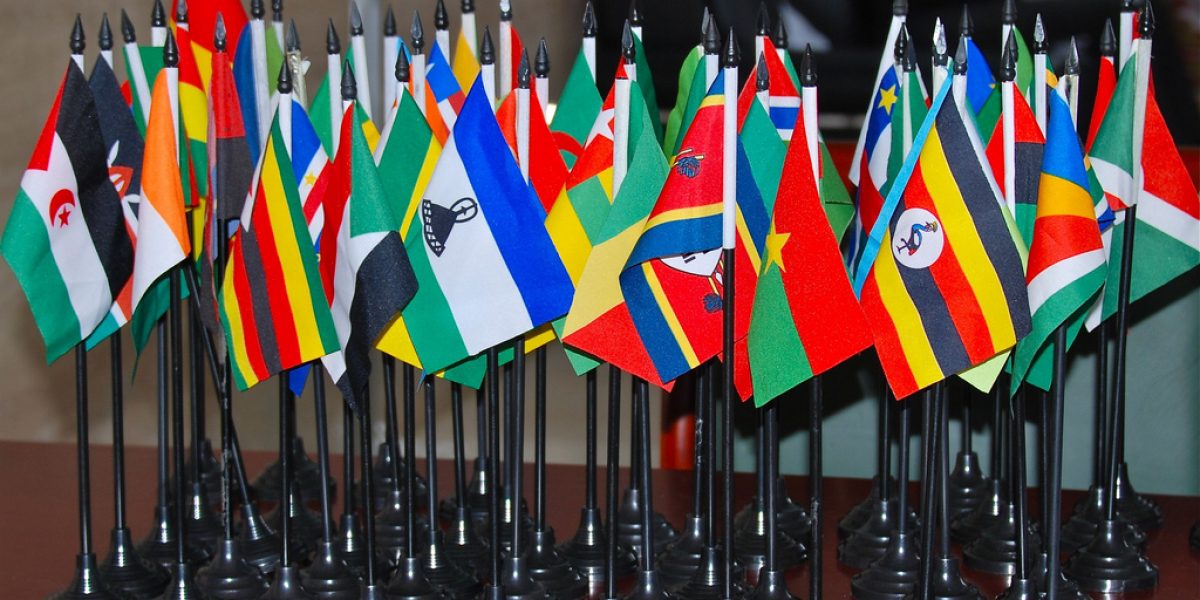But it faces an emerging crisis of credibility as key supporters question the Nepad Secretariat’s strategy and its failure to turn grand intentions into gainful initiatives.
Despite progress – rising enrolment in the African Peer Review Mechanism, launch of the African Peace and Security Council, action to halt a spate of conflicts, and numerous efforts to persuade international bodies to support Nepad – doubts are growing.
In October, tensions over the continent’s flagship plan broke into the open at the conference convened in South Africa to assess Nepad’s progress. ‘For three years people have been hearing about this vision … but you can’t eat a vision,’ said Cheikh Tidiane Gadio, foreign minister for Senegal. ‘Now we want to see three priorities for Nepad: One, implementation, two, implementation, three, implementation. We have reached a critical point where we need to get away from the rhetoric and translate it into the implementation of projects.’
Where are the bridges?
Gadio’s boss, one of the founding fathers of Nepad, was more critical. ‘People in Senegal ask me what is happening with Nepad and I have a great deal of difficulty explaining what we have achieved,’ Senegalese President Abdoulaye Wade told conference delegates. ‘We are spending an enor-mous amount of time and money on conferences, but … we have not had one single [project] that has been realised.’
The numbers tell a plain story. The Nepad Annual Report touts the plan’s infrastructure Short Term Action Plan (STAP), noting that the African Development Bank had financed eight STAP projects valued at $372.5 million. But according to a review by the Bank,
- Of 52 facilitation projects in the STAP, fewer than half were in any stage of implementation;
- Of 18 capacity building projects, only six were being implemented; and
- Of 36 investment projects, only seven were starting to be implemented.
Gadio said the Nepad heads of state implementation committee had failed to clearly assign responsibility and demand performance, while the Secretariat did not follow an effective operating plan.
Wiseman Nkuhlu, head of the Nepad Secretariat, contended: ‘You are not going to see any Nepad projects. There is no such thing. The real implementation and ownership must be by the countries and by the subregions. Our [role] is to energise, inspire, be a catalyst and get things moving.’
But Nkuhlu’s vision of Nepad places the responsibility for implementation outside the Secretariat. If the Secretariat is not responsible for implementation of projects, who is and what precisely is the Secretariat accountable for?
One South African official at the conference argued that trying to count specific Nepad achievements misses the point. ‘What matters is not whether the Secretariat made progress but that Africa is making progress,’ the official said. ‘Aid levels are up. Conflicts are being dealt with. Africa is on the global agenda.’
But Wade is sceptical about Nepad’s contribution to such trends. ‘We must not confuse what is being done by the states or the AU [African Union] and say it is Nepad,’ he said. ‘We can say things were done in Senegal because of the Nepad mindset, but Nepad itself didn’t do anything. Presidents [Thabo] Mbeki, [John] Kufuor and [Olusegun] Obasanjo have helped solve the crisis in Guinea Bissau – but was that Nepad?’
Wade’s confusion grows because com-munications from Nepad dwell on ends but ignore means. The Secretariat has never publicly discussed what it does, set out a measurable agenda for its activities or developed strategies to influence the world and African states.
Assessing Nepad
If peer review were to judge nations on their implementation of Nepad projects, it could speed delivery. But officials offered conflicting views. Nkuhlu told the conference that measurement of Nepad progress was ‘implicit’ in peer review, but APRM officials said reviews would not assess progress on Nepad.
Mbeki noted that ‘the lack of capacity at regional levels [is] such that even when we have mobilised the necessary resources, we are held back by the fact that we cannot translate some of the good and visionary ideas into concrete, implementable programmes.’
Obasanjo blamed donors for failing to follow through on pledges. Donor nations countered that Nepad has been slow to conduct feasibility studies.
‘We would like to see some sense of priorities,’ said a British development official during discussion of the $18 billion Nepad agriculture plan. ‘I think it is an unrealistic amount of money being asked for here.’
Importantly, there was also high-level recognition that Africa must do more from within. Obasanjo noted that ‘the laudable goals of Nepad will not succeed if we do not courageously and comprehensively address the issue of corruption, mismanagement, waste and misplaced priorities in our societies.’








